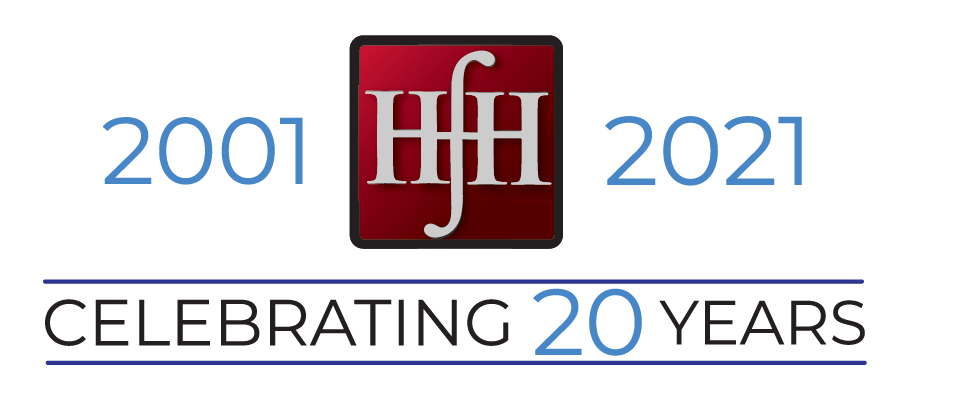THE BIG IDEA: Track what matters in your job search: personal meetings, target companies, hours worked, and positive deposits.
The best way to get totally frustrated in your job search is to stress about things you can’t control. No matter how long you stare at your phone, you can’t make a company call you back, schedule an interview, or extend an offer.
Instead, identify ways to measure progress in areas that you can control. Track these each week to develop a healthy mindset and focus on things you can actually influence.
Measuring what matters
Last year I decided to join a CrossFit gym because my workout routine was getting boring and I wasn’t seeing results. The new program was really hard and challenged me in a lot of areas where I wasn’t strong.
Some workouts were great, and some were humbling, but I knew that if I just showed up consistently, good things would happen over time. So I blocked out time for the workout on my calendar. I set an alarm and put out my clothes the night before to increase my odds of just showing up.
Rather than measuring incremental progress or worrying about weight goals, the single fitness objective I tracked for the year was the number of CrossFit workouts I attended.
It’s amazing how you get what you measure. This concept works in measuring success during your job search as well.
The challenge of a job search is that you are typically not accountable to anyone except yourself, so it’s easy to be unfocused. Measure nothing, and you’ll start drifting. Measure things you can’t control, and you’ll start to feel stressed and frustrated. You’ll end up focusing on what is not working, which leads to a negative mindset.
How do you measure your job search in a productive, meaningful way? In working with hundreds of people on a job search over the years, here are four things I’d recommend tracking as part of your weekly job search success dashboard:
1. Number of new in-person meetings.
It’s easy to hide behind email and LinkedIn on the job search, but success happens when you meet people in person. Getting out of the house and having conversations adds momentum. It’s also good for interview practice and confidence building.
Go through your contacts list and LinkedIn list – you know a lot more people than you realize who would enjoy meeting you. Think about past co-workers, vendors who called upon you and church/volunteer groups you are part of. Look at potential networking breakfasts or lunches in your target industry where you can show up and meet new people.
If possible, meet onsite at the person’s place of employment. Use your job search to learn more about new companies, roles, and industries where your friends work. This will open up your mind, and you might be surprised. Employers often start with referrals when looking for prospective hires.
Set a goal of scheduling five new in-person meetings each week. Whether it’s a hiring manager at a company where you’d like to work or coffee with a friend, just get at least five a week. Some weeks you may get 10-15, but keep consistent and schedule at least five new meetings each week.
And double book. Once you schedule a meeting in a particular part of town, think about anyone you might know who also works in that building or nearby, and see if you can schedule something before or after your other meeting. It’s efficient and gives you a credible excuse to connect (“I’m going to be in your neighborhood on Tuesday at 2 next week for a meeting. Want to grab a coffee before or after?”).
2. Number of new company targets.
Once you start to gain some traction, don’t pin your hopes on the few companies you are interviewing with. You need to keep moving and adding new targets to the mix, as it helps to always have new options.
In reviewing the hundreds of prospective companies in your area, focus your energy and time on the top targets—places you’re excited about and that could be a good fit.
To separate your target companies from the mere prospects, do your research.
- * What do they do?
- * What’s their culture like?
- * Have they received any news coverage lately?
- * Do you know anyone who works there?
- * Who are their Competitors?
- * Do they list any job openings that could be a fit?
- * What would the commute look like?
- * Who might be the hiring manager, and can you connect with them?
- * What is your compelling reason why they could be an ideal fit? What is your “quick pitch” if they called you?
Come up with a list of 20 target companies, and build your personal knowledge about each one.
3. Number of hours “worked.”
Are you getting up at the crack of noon? Are you spending thirty minutes on Facebook and then complaining about the tough job market?
Treat your search like a job that requires 40 hours per week, and prioritize your time just like you would for a regular paid job. The majority of people I talk with about their job search honestly spend 10-20 hours max each week, because they have distractions at home and they don’t have anyone keeping them accountable for their time.
Set an alarm. Shower. Exercise. Establish a schedule and show up on time. The discipline and habits you practice during the job search set you up for success with your next job as well.
The difference between a successful job search and an unsuccessful job search can simply be a matter of hours. If you spend 40 hours a week truly “at work” on your job search, you’re bound to see increased results.
4. Number of positive deposits.
Our minds are like a bank account and you want to have more positive deposits than negative withdrawals. When we get busy in our jobs and our lives, we often forget the good stuff and get anxious about the unimportant stuff, and then find ourselves overdrawn.
Keeping a positive outlook and a heart of appreciation is helpful in life, but also in a job search. In a season of struggle, gratitude reminds you of the many things going right in your life and how blessed you really are.
This is not just a Tony Robbins self-help kind of thing, but also a very practical strategy to help you win a job. How? Companies are looking for people who are healthy, happy, centered in who they are, interesting, and confident. In a competitive job market, these attributes can make the difference between multiple qualified candidates.
Create an intentional daily ledger to track positive things and healthy disruptions to your normal routine:
- * Writing down things you are grateful for.
- * Talk with someone who loves you and say thank you.
- * Work out. Eat right and catch up on sleep.
- * Read an encouraging book.
- * Put up an inspirational quote, verse, or saying on the mirror and memorize it.
- * Watch a funny or inspirational movie.
- * Get a coffee and walk around a new neighborhood.
- * Eat at a new restaurant.
- * Write down a new insight you are learning.
- * Volunteer at your favorite non-profit.
- * Watch an new TED talk or podcast.
After a few weeks, you will find you come across healthier, happier, more at peace, more interesting (as you have been learning new things), and more confident. It’s your choice. Do you want a surplus or deficit in your mental account? This balance won’t happen by accident, so you need to make a plan.
The secret ingredients
Your attempt to track your job search will fall short without two essential tactics:
- 1) Write it down. Track your weekly progress in each of these four areas. You can do this however you like, but we’ve created a free template to encourage you to get started. Download your Weekly Success Tracker Template (Excel).
- 2) Invite accountability. Ask a spouse and/or close friend to check in on your weekly activity. This will motivate you to pursue successful progress to report, and people who are close will know practical ways they can encourage you.
For more helpful job search tips: Ultimate Job Search Guide: Recruiter Insider Tips



